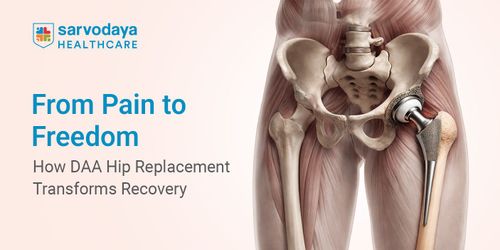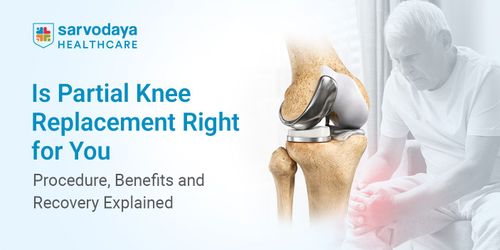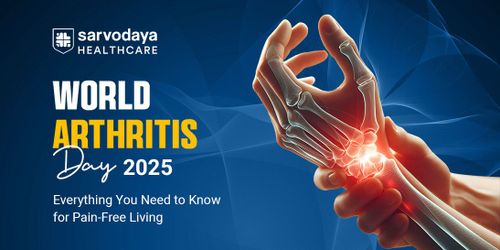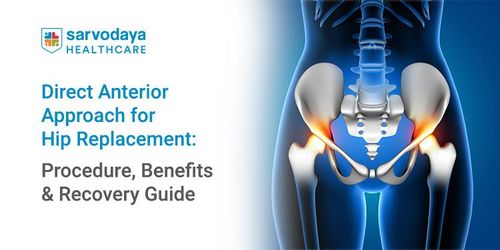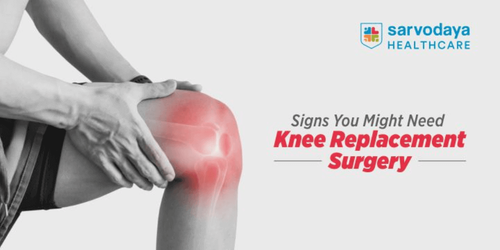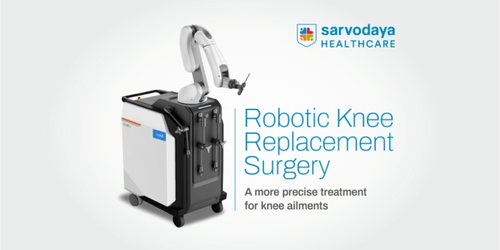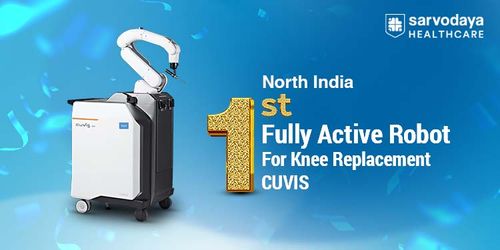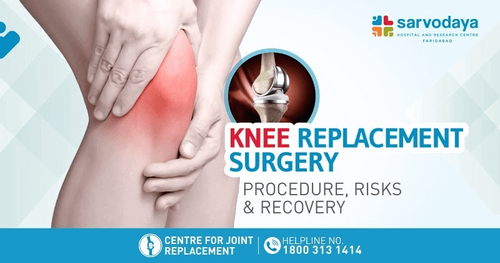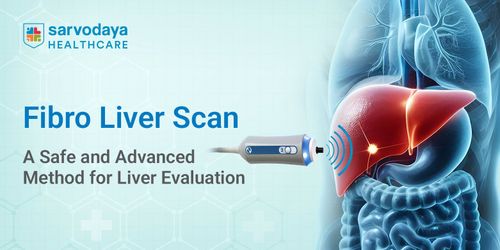Chronic knee pain can be a nightmare to live with. Whether it is climbing stairs, standing in one position for a long time, or even walking to the other side of the room, each movement causes pain to the person. These constraints deteriorate the physical health, confidence and independence of the person as time passes.
In this blog, we explore everything you need to know about knee replacement surgery, including what leads to it and the benefits of knee replacement in the interest of patients' long-term health.
Understanding Knee Joint Pain
The knee joint is one of the most used parts of the body. It supports your weight, gives you the necessary support when walking, standing, and even sitting, and absorbs shocks during movement. Daily activities may be painful and hard when this joint is damaged or inflamed.
The most frequently observed causes leading to the need for knee joint pain treatment are as follows:
- Osteoarthritis: A degenerative joint disease in which the cartilage is slowly eroded and the bones begin to grind together.
- Rheumatoid arthritis: It is an autoimmune disorder that causes inflammation of the lining of the joints.
- Injuries: Injury, ligament or cartilage damage caused by accidents or sports.
- Post-surgical complications: Pain can also be one of the complications following previous surgeries or interventions.
Signs That Indicate the Need for Knee Replacement Surgery
You may consider yourself for knee surgery for arthritis if you experience the following:
- The pain does not stop even after resting, exercising, or taking medication.
- You cannot climb stairs, walk even short distances or stand for long hours.
- Your motion and stability are being limited by the stiffness in your knees.
- Persistent pain interrupts your sleep.
- Severe cartilage loss or joint damage as shown in imaging test results
- Everyday activities like bathing, sitting or bending are becoming more challenging over time.
Types of Knee Replacement Surgery
The different types of knee joint pain treatment available are:
- Total Knee Replacement (TKR): The most common knee surgery. In it, the artificial parts are used to replace both parts of the knee. It is suitable for conditions in which one has general arthritis or joint wear and tear.
- Partial Knee Replacement (PKR): It is also called unicompartmental knee replacement and is suited to patients with damage in a single part of the knee. It is a less invasive procedure with a quicker recovery period.
- Revision Knee Replacement: Carried out in cases of wearing out of a former knee implant, loosening or infection of the implant. This process is more complicated and needs specialised knowledge.
- Robotic Knee Replacement: Robotic knee replacement is one of the latest options where high-tech robotic technology is used to help the surgeon place the implant accurately. It provides better alignment, less tissue damage and faster recovery.
Knee Replacement Recovery Time
The road to full mobility does not stop with the surgery. The knee replacement recovery time is one of the most important steps of the healing process and defines the long-term success of the operation to a great extent.
Week 1: The first week
- Movement is promoted within 24 hours post-surgery.
- The main focus is pain management and wound care.
- Physiotherapy starts with simple knee bending and walking exercises.
Phase 2: Weeks 2-6
- Strength and flexibility are enhanced with continuous physiotherapy.
- By week 6, most patients can walk without any help.
- You can again take light household work and short trips.
Phase 3: More than 6 Weeks
- You can resume activities like cycling, swimming, and driving even when the recovery is ongoing.
- The majority of individuals resume their jobs (if it does not involve physically demanding chores) at the 6- to 8-week point.
It usually takes 3 to 6 months to fully recover and achieve optimum comfort levels.
Benefits of Knee Replacement Surgery
For patients who have to live with chronic joint pain in the knee, the benefits of knee surgery for arthritis are not just physical; it can also change the life of the patient.
Here are some benefits of knee replacement:
- Long-Term Pain Management: Patients receiving knee surgery experience freedom from the chronic pain, especially if they suffered from osteoarthritis or degeneration of joints. They regain their ability to walk, climb up the stairs and stand without wincing.
- Improved Mobility: By replacing the damaged surfaces of the joint with smooth implants, the stiffness and swelling that previously restricted movement are considerably lessened. This makes carrying out everyday activities substantially easier.
- Improved Quality of Life: The activities that had to be avoided before, such as travelling, walking long distances, or going on walks with family, can now be resumed. One of the most fulfilling advantages of knee replacement is the regained independence.
- Emotional Wellbeing: Disability and pain usually lead to frustration, isolation, or even depression. Getting back mobility makes the patients feel empowered, active, and optimistic.
- Increased Accuracy with the Help of Robots: Robotic knee replacement enhances the accuracy of the surgery, achieves better joint alignment and leads to fewer post-surgery complications.
Conclusion
Chronic knee pain does not have to define your life. Arthritis, injury, or degeneration, whichever the cause, can be reversed with early treatment and knee replacement surgery to help you regain mobility, confidence, and happiness.
At Sarvodaya Hospital, Faridabad, the world-class care is designed to suit your particular needs. The hospital has highly sophisticated facilities and highly skilled robotic knee replacement surgeons in Faridabad who focus on performing minimally invasive procedures. Such facilities offer renowned services for robotic knee replacement in Delhi NCR, making the hospital a pioneer in orthopaedic excellence.
If you are seeking treatment for knee joint pain, make an appointment today and get your condition diagnosed early.







